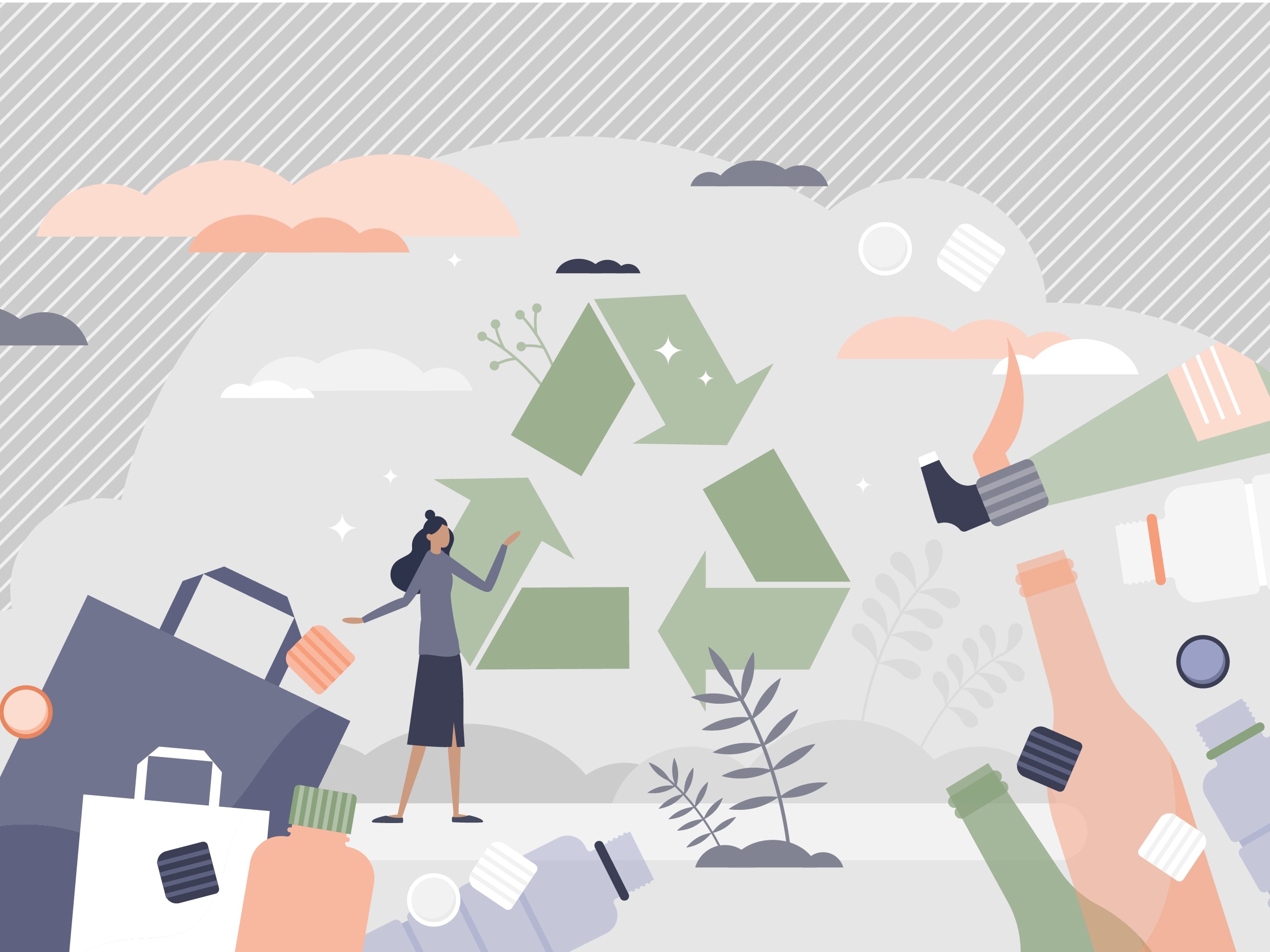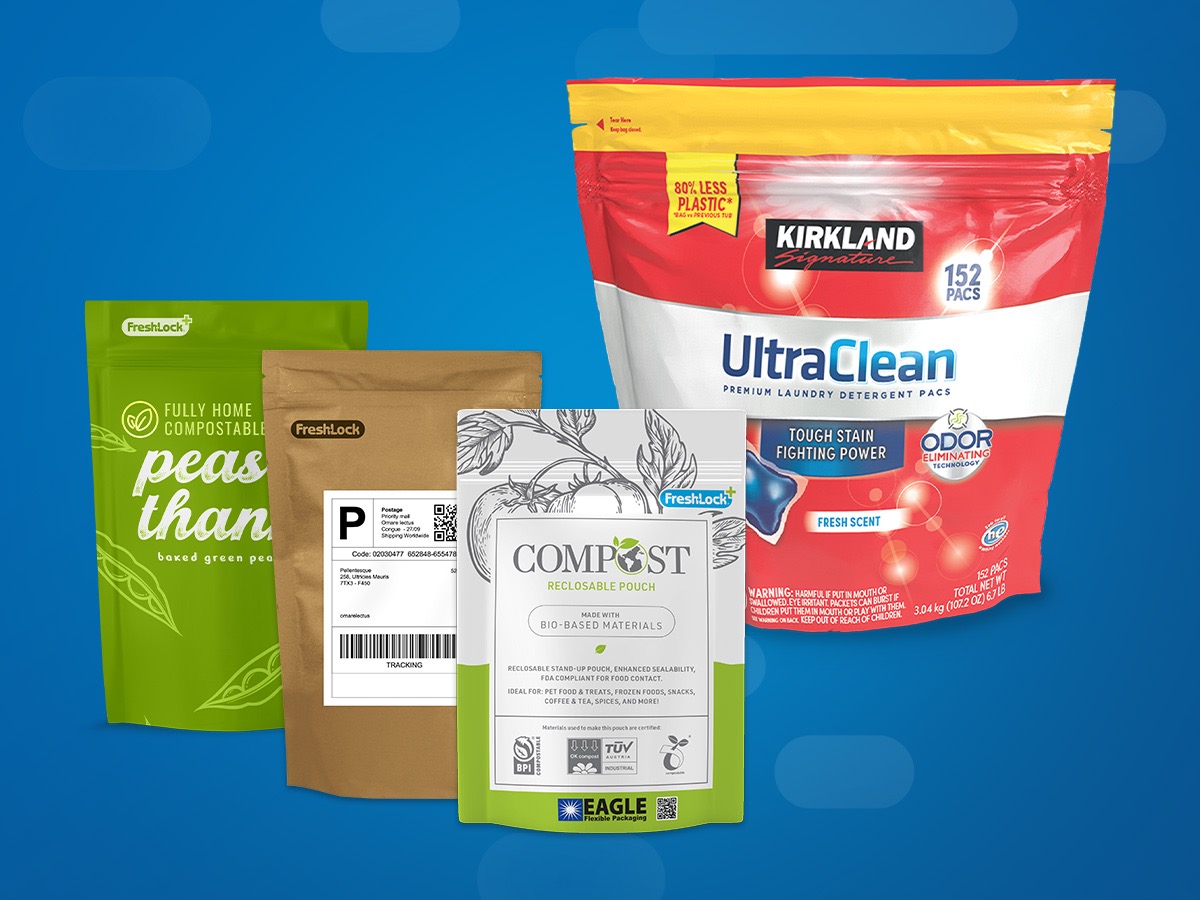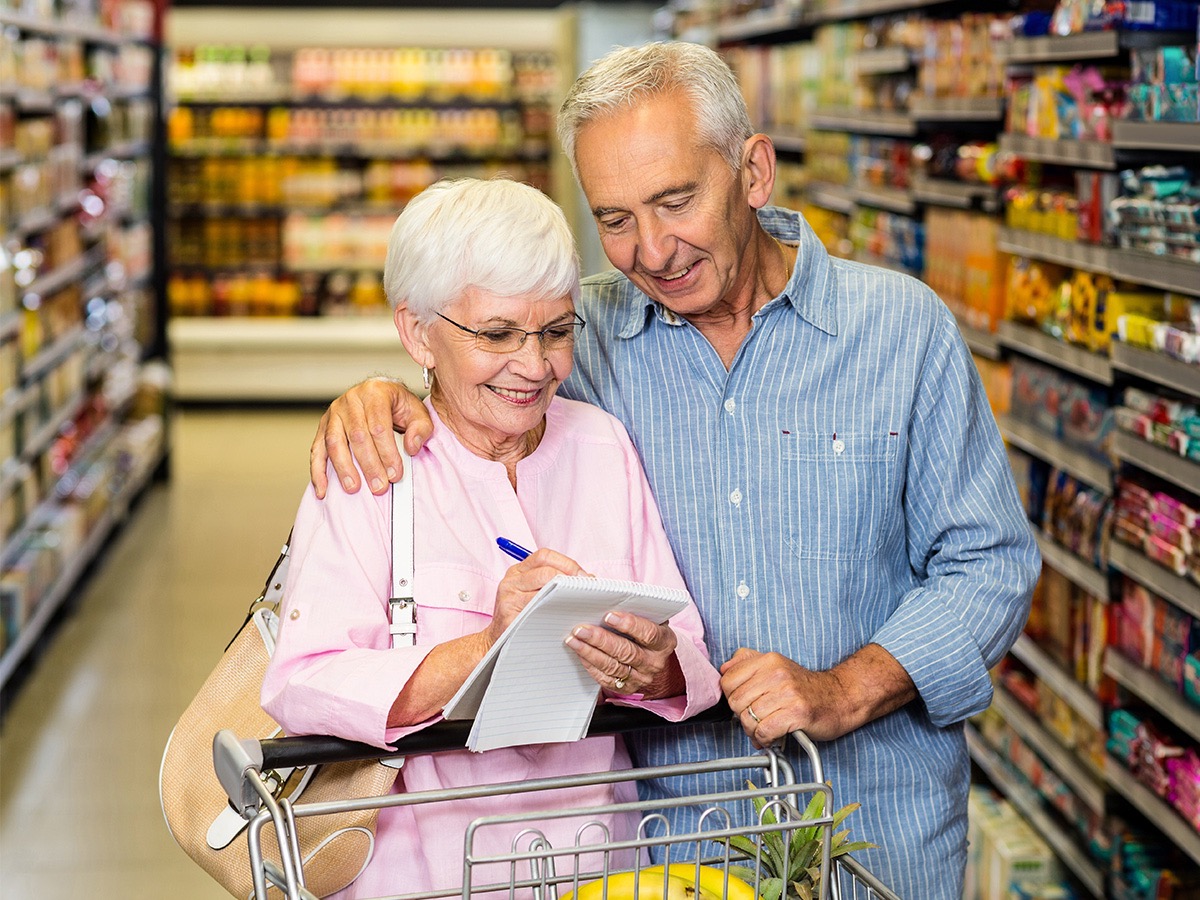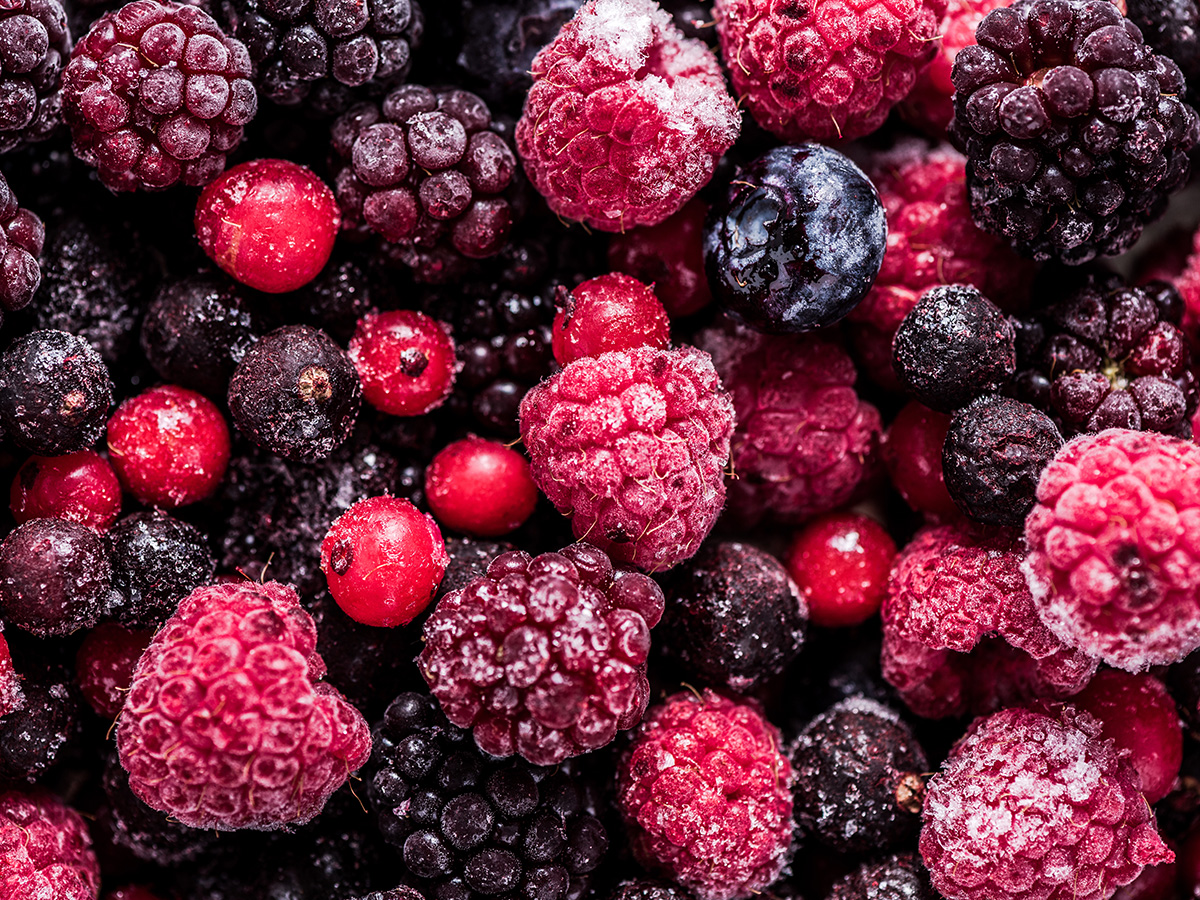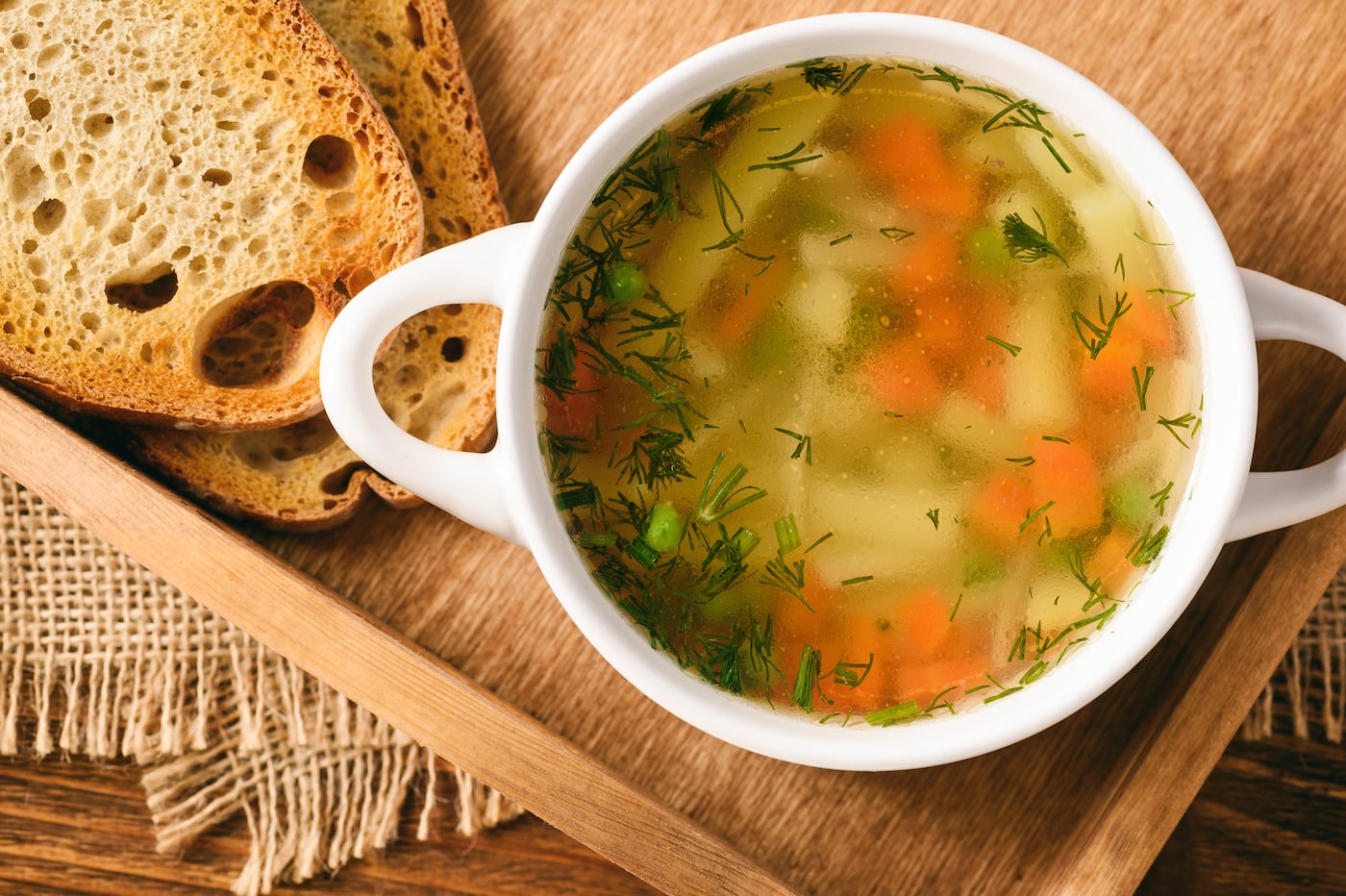
Recyclable vs. Compostable Flexible Packaging: Which is Right For You?
Consumer demand for sustainable packaging continues to rise and has resulted in an industry-wide shift —led largely by more environmentally-conscious generations—to support brands that employ sustainable practices. A 2021 Mintel study shows that consumers believe they can make a positive impact on sustainability, with a quarter believing it lies with them, the end user. In addition, most believe that companies are responsible, with nearly half believing brands are responsible for recyclability. With more attention on it, is recycling our only option?
Recyclability and composability are both common environmentally-friendly practices that are end-of-life scenarios to salvage materials. Fresh-Lock’s team of experts continues to weigh in on these conversations and illustrate their dedication to consistently exploring and discovering the best practices for consumer and business packaging needs as it relates to reclosable flexible packaging.
Understanding the Difference Between Recyclable and Compostable Packaging
Recycling is the process of collecting and processing materials and turning them into something new. Recycling packaging is beneficial for the environment because it reduces the amount of waste in landfills and incinerators. It conserves natural resources that manufacturers use in packaging such as plastic film, foil, paper and cardboard, container glass, steel, aluminum, water, and minerals, while also helping prevent pollution and reduce greenhouse gases.
Compostable materials are primarily made from plants such as sugar cane, stover, vegetable oil, straw, dent corn, and hemp. When the organic ingredients return to the soil, they will break down under certain conditions, such as heat, oxygen, humidity, and the presence of microorganisms. After some time, the materials leave behind only nutrients that will be returned to the soil.
Consumer Insights on Sustainable Packaging
Consumer values can influence your decision to choose a recyclable or compostable packaging solution. This is why CPG brands have turned to flexible packaging to connect with their target audience and their values. By understanding the personality traits and goals of your target audience, you can embrace packaging that matches your brand’s persona and aligns your shared values.
Recyclable or Compostable Packaging: What’s Best for Your Brand?
While consumer preferences are important to consider, brands need to determine the most appropriate choice for their product. For flexible packaging to be fully recyclable or compostable, every component of the pouch has to meet individual requirements for package functionality and product protection.
To date, recyclable packaging has been the popular solution for brands looking to incorporate sustainability into their products. With cost effectiveness, the benefits of recyclable packaging currently outweigh compostability simply due to the materials needed to produce compostable packaging and the established infrastructure for recycling.
But for some applications, recycling isn’t the best option. Consumers must clean residues, oils, and product remnants from packages to avoid contaminating the recycling stream—an unrealistic expectation for many product types. Compostable packaging is ideal for food and organic products because they complement composting by pulling moisture in. Products that will leave behind unwanted residues, such as household cleaning products, will add toxicity to the soil—not intended for composting.
Advantages and Disadvantages of Recycling and Composting
According to Green Blue, an environmental nonprofit dedicated to promoting a more sustainable materials economy, recyclability depends on the availability of waste treatment facilities and can vary from state to state, making it difficult for Americans to understand what and where materials can be recycled.
To dispose recyclable and compostable packaging, your consumers must understand the difference. Product labeling can help consumers understand how to properly dispose of such items and how these items are properly recycled or enter an industrial composting facility to fully degrade into organic matter.
Research by Future Market Insights suggests that global sales of compostable foodservice packaging will reach 28.8 billion USD by 2029. Although compostable products are more expensive (some compostable materials can be up to 10 times more expensive to produce) the long-term ramifications of not using them, such as pollution, crowded landfills, and government regulations and fines, help put the cost into perspective. Additionally, as the demand for compostable materials increases, the prices will fall, which further promotes increased compostability.
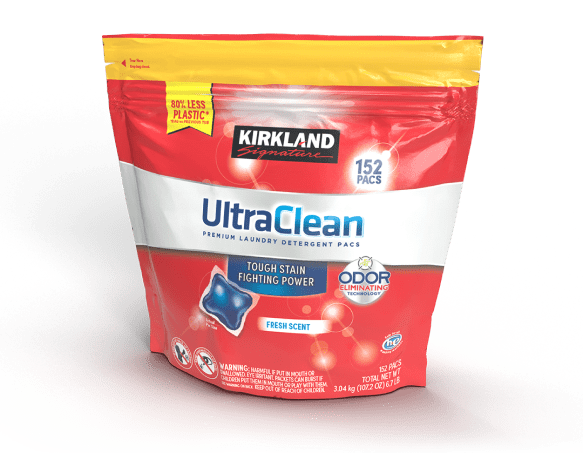
Case Study: Kirkland Signature® Commitment to Sustainability
Kirkland Signature® recently adopted sustainable flexible packaging for its Ultra Clean Premium Laundry Detergent Pacs. The previous rigid packaging was large and bulky, and Kirkland Signature® aimed to reduce their carbon footprint while ensuring its new packaging was fully recyclable with a child-resistant reclosable feature.
In collaboration with the Fresh-Lock team and its partners, the updated packaging was launched in April 2022. Consumers responded positively to the new pouch that uses 80% less plastic than the previous packaging. Not only did Costco’s store operations team prefer the new solution, but sales exceeded expectations. Reducing the carbon footprint by 85%, the new flexible packaging offers opportunities to reduce pollution—all while saving time and money.
More than 600,000 gallons of diesel fuel will now be saved annually, helping the brand increase profits and reduce costs. Additionally, 1.2 million pounds of resin is projected to be saved per year. Because of these many benefits, Costco plans to use this reclosable flexible packaging solution for other future products.
Collaboration is Key: Sustainable Flexible Packaging Suppliers and Partners
The best way to determine what works for your brand is to work with the right partners. The Fresh-Lock team values collaboration in the flexible packaging industry and strives to connect with flexible packaging colleagues to help better navigate this changing landscape. Talk to the Fresh-Lock® team to learn more about how recyclable and compostable flexible packaging can help you meet the changing needs of today’s consumers.

 Back to Blog
Back to Blog